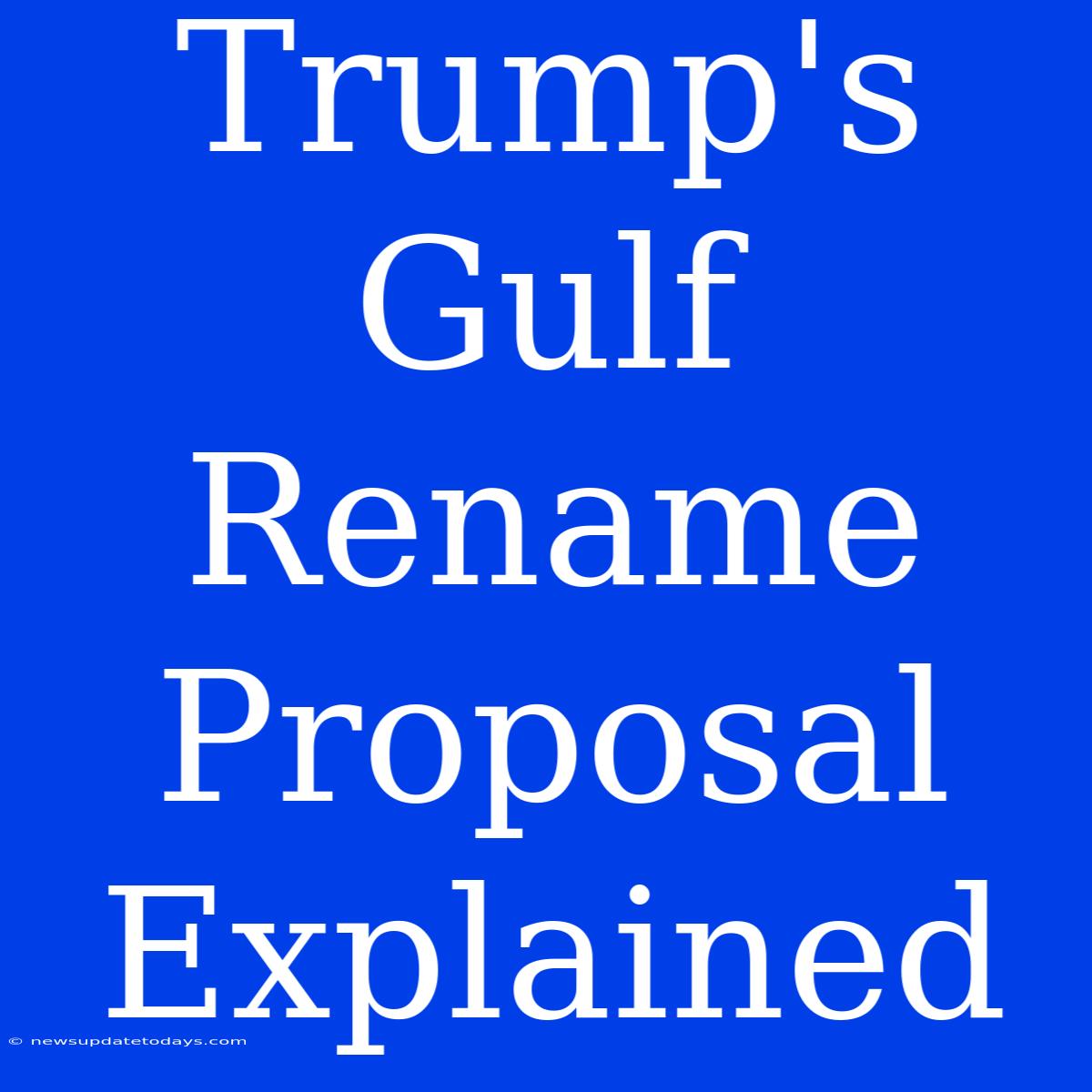Trump's Gulf Rename Proposal: A Controversial Idea Explained
Donald Trump's suggestion to rename the Persian Gulf the "Arabian Gulf" ignited a firestorm of debate. This article delves into the proposal, exploring its historical context, geopolitical implications, and the reasons behind the intense reaction.
Understanding the Name Dispute
The naming of the Persian Gulf is a long-standing point of contention. While "Persian Gulf" is the internationally recognized and historically accurate name, reflecting centuries of usage, some Arab nations prefer "Arabian Gulf." This difference stems from competing narratives of regional history and identity.
Trump's Proposal: Context and Motivation
Trump's suggestion, made during his presidency, wasn't solely about semantics. It was arguably part of a broader foreign policy strategy aimed at strengthening ties with Arab nations and potentially countering Iranian influence. His administration often emphasized a more transactional approach to diplomacy, seeking to leverage strategic partnerships based on mutual interests.
Historical Context: A Deep Dive
The term "Persian Gulf" has deep historical roots, dating back to ancient Greek texts and confirmed by numerous historical maps and documents. The area's historical connection to Persia (modern-day Iran) is undeniable. However, Arab nations have long argued for the name "Arabian Gulf," emphasizing the significant Arab population residing along its shores.
Geopolitical Ramifications: Beyond Names
The name debate isn't merely an academic exercise. It reflects deeper power dynamics and competing national identities in the region. For Iran, the use of "Persian Gulf" is a matter of national pride and historical legitimacy. Any attempt to change this is viewed as a challenge to its regional standing.
International Consensus and Resistance
The vast majority of the international community continues to use "Persian Gulf," including the United Nations. Trump's proposal was met with significant resistance, not just from Iran, but also from many international organizations and countries who recognized the longstanding and widely accepted nomenclature. This highlights the limitations of unilateral attempts to alter established conventions.
The Lasting Impact:
While Trump's proposal ultimately failed to change the established naming convention, it served to underscore the ongoing sensitivities surrounding regional identity and historical narratives. The debate remains a potent symbol of the complex geopolitical landscape of the Middle East.
Frequently Asked Questions (FAQs)
-
Why is the name of the Persian Gulf controversial? The controversy stems from competing historical claims and national identities. Iran emphasizes its long-standing historical association with the Gulf, while some Arab nations prefer the name "Arabian Gulf" to reflect their presence in the region.
-
What was Trump's motivation for suggesting a name change? While the exact reasons are debatable, it's widely believed that his proposal was linked to his broader foreign policy objectives, potentially aimed at strengthening relationships with Arab nations.
-
Was Trump's proposal successful? No. The international community overwhelmingly continued to use the name "Persian Gulf," and the proposal failed to gain traction.
-
What are the geopolitical implications of the name debate? The debate is a reflection of wider power dynamics and competing narratives within the region. It showcases the sensitivity surrounding issues of national identity and historical legitimacy.
This comprehensive look at Trump's Gulf renaming proposal helps clarify the historical context, geopolitical factors, and ongoing ramifications of this significant, albeit unsuccessful, diplomatic maneuver. The debate underscores the importance of understanding historical context and the complex political landscape of the Middle East.

